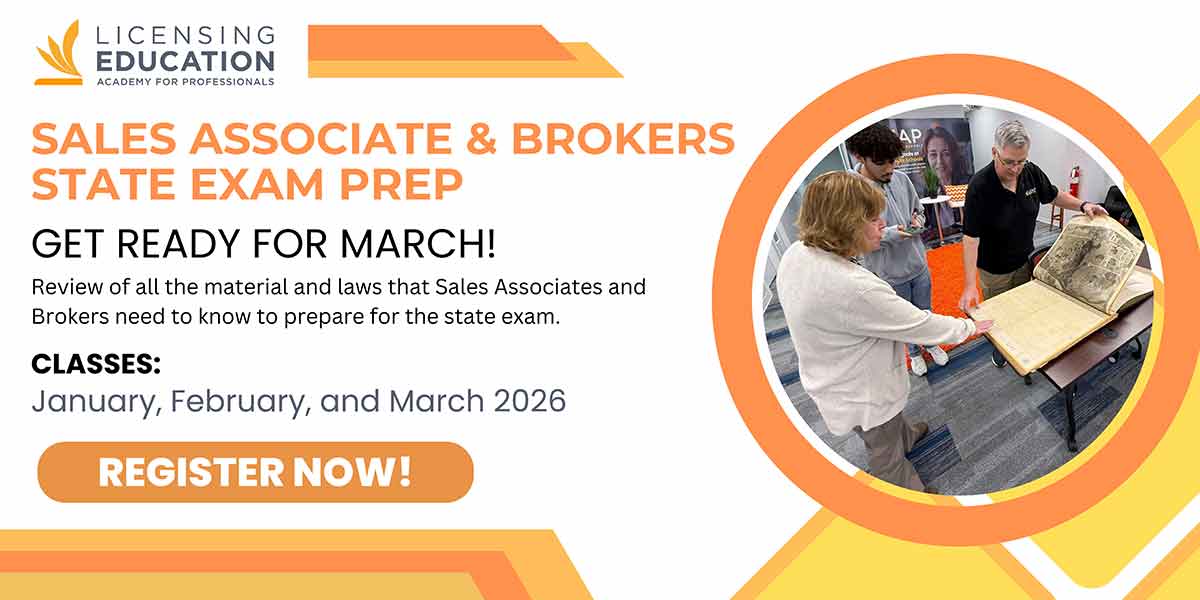Becoming a licensed real estate broker can open new career opportunities. A step up from being a real estate agent, offering more autonomy and higher earning potential.
However, the path to obtaining a real estate broker license can seem complex. It involves meeting eligibility criteria, undergoing broker training, and passing a broker exam.
In this guide, we’ll break down the steps to becoming a licensed broker. We’ll also delve into state-specific requirements, focusing on Connecticut and Orlando, FL. Let’s start.
Understanding the Role of a Real Estate Broker
A real estate broker is a step above a real estate agent. Brokers can work independently or hire agents to work for them. They have a deeper understanding of real estate laws and transactions.
Brokers handle the buying, selling, and renting of properties. They negotiate deals, prepare contracts, and guide clients through the process.
Obtaining a real estate broker license is crucial for this role. It signifies credibility and expertise in the field.
Eligibility Criteria for a Real Estate Broker License
Before you start your journey to becoming a broker, you need to meet certain criteria. These requirements vary by state, but some common ones exist.
Most states require you to be at least 18 or 19 years old. You also need a high school diploma or equivalent.
Here’s a basic list of eligibility criteria:
- Be at least 18 or 19 years old
- Have a high school diploma or equivalent
- Have a certain amount of real estate experience (usually as a licensed real estate agent)
- Complete the required pre-license education
- Pass the real estate broker’s exam
Pre-Licensing Broker Training: What You Need to Know
Before you can sit for the broker exam, you’ll need to complete a pre-licensing course. This course is crucial for your success. It covers topics you’ll need to know as a broker.
Many institutions, including the LEAP Academy, offer these courses. They provide you with the knowledge and skills needed to pass the broker exam.
Remember, the goal is not just to pass the exam, but to become a competent and ethical real estate broker.
The Broker Exam: Format and Preparation Tips
The broker exam is a significant step in obtaining your real estate broker license. It tests your understanding of real estate laws, principles, and practices.
The format varies by state, but generally, it includes multiple-choice questions. You’ll need to study hard and use resources like practice exams to prepare.
Remember, passing the broker exam is a testament to your knowledge and readiness to become a licensed broker.
Applying for Your Real Estate Broker License
Once you’ve passed the broker exam, it’s time to apply for your license. This process involves submitting an application to your state’s real estate commission.
You’ll need to provide proof of your education, exam results, and pay a licensing fee. A straightforward process, but attention to detail is crucial.
Remember, obtaining your real estate broker license is a significant milestone in your career. The key to unlocking new opportunities in the real estate industry.
State-Specific Licensing: Focus on Connecticut and Orlando, FL
Each state has its own set of rules for obtaining a real estate broker license. For instance, Connecticut (CT) and Orlando, FL have unique requirements that you need to meet.
In Connecticut, you need to complete a 60-hour broker pre-licensing course. In Orlando, FL, you must complete a 72-hour pre-license course and pass the state exam.
Here are some key differences:
- Connecticut: 60-hour broker pre-licensing course
- Orlando, FL: 72-hour pre-license course and state exam
Remember, it’s essential to research your state’s specific requirements before starting the licensing process.
License Renewal and Continuing Education
Once you’ve earned your real estate broker license, the journey doesn’t end there. You need to renew your license regularly. This often involves completing continuing education courses.
Many states require license renewal every two years. The exact requirements can vary, so it’s crucial to stay informed.
Continuing education keeps you updated on industry changes. A great way to stay competitive and provide the best service to your clients.
Leveraging Your License for Career Advancement
With a broker license, you unlock new career opportunities. You can start your own brokerage or specialize in a niche market.
Remember, success comes from leveraging your license effectively. Stay updated, network, and always prioritize your clients’ needs.






